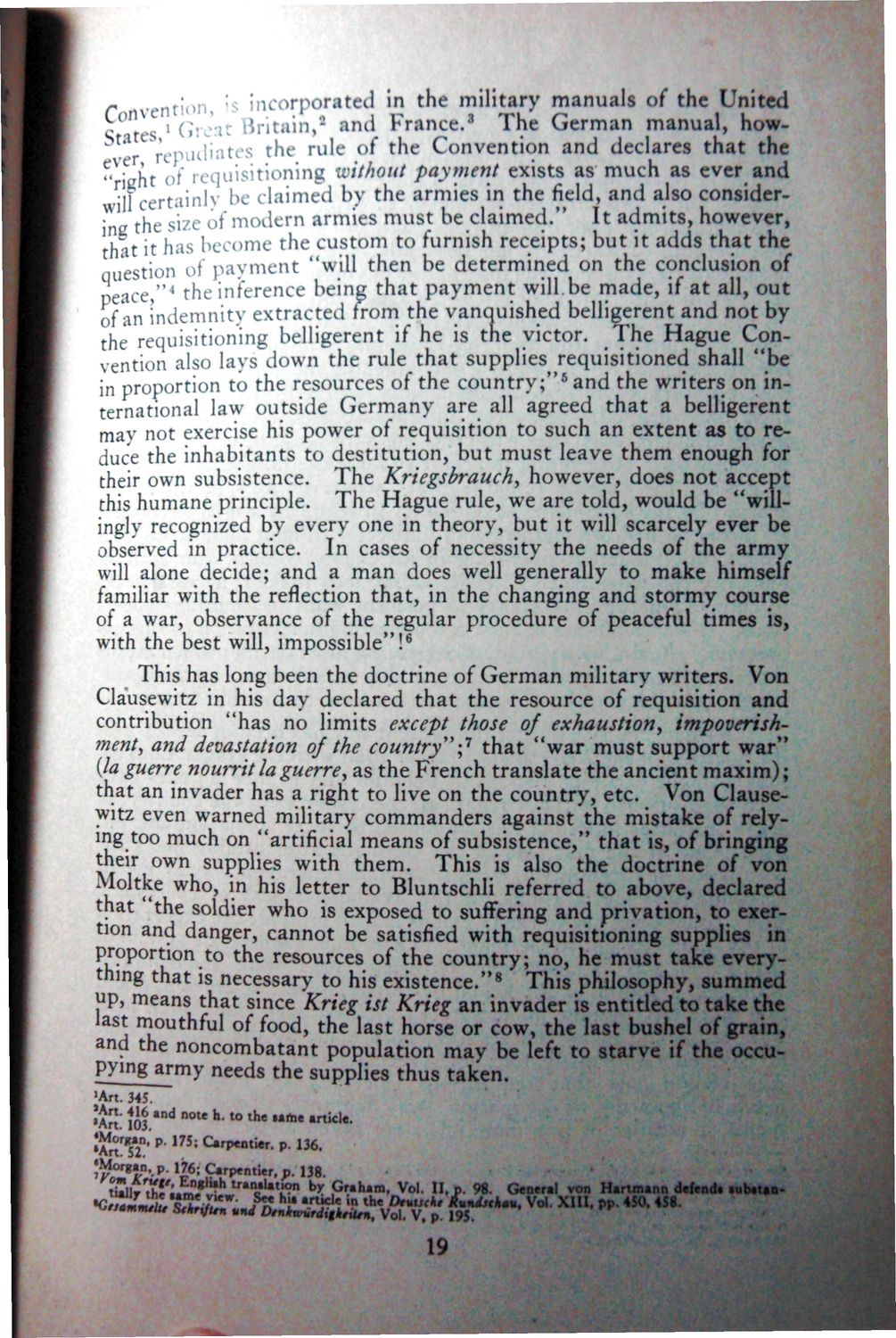| |
| |
Caption: War Publications - WWI Compilation 1923 - Article 14
This is a reduced-resolution page image for fast online browsing.

EXTRACTED TEXT FROM PAGE:
r vention, s incorporated in the military manuals of the United l at 2 am rance 3 Q ^ S ( > ^ Britain, * ^ The German manual, how^repudiates the rule of the Convention and declares that the "right or requisitioning without payment exists as much as ever and if certainly be claimed by the armies in the field, and also considerM 'mr the size of modern armies must be claimed. It admits, however, that it has become the custom to furnish receipts; but it adds that the luestion of payment "will then be determined on the conclusion of 1 peace" the inference being that payment will be made, if at all, out of an indemnity extracted from the vanquished belligerent and not by the requisitioning belligerent if he is the victor. The Hague Convention also lays down the rule that supplies requisitioned shall "be 5 in proportion to the resources of the country;" and the writers on international law outside Germany are all agreed that a belligerent may not exercise his power of requisition to such an extent as to reduce the inhabitants to destitution, but must leave them enough for their own subsistence. The Kriegsbrauch^ however, does not accept this humane principle. The Hague rule, we are told, would be "willingly recognized by every one in theory, but it will scarcely ever be observed in practice. In cases of necessity the needs of the army will alone decide; and a man does well generally to make himself familiar with the reflection that, in the changing and stormy course of a war, observance of the regular procedure of peaceful times is, 6 with the best will, impossible"! This has long been the doctrine of German military writers. Von Clausewitz in his day declared that the resource of requisition and it contribution of exhaustion, impoverish war must support war of guerre that an invader has a right to live on the country, etc. Von Clausewitz even warned military commanders against the mistake of relying too much on "artificial means of subsistence," that is, of bringing their own supplies with them. This is also the doctrine of von Moltke who, in his letter to Bluntschli referred to above, declared that "the soldier who is exposed to suffering and privation, to exertion and danger, cannot be satisfied with requisitioning supplies in Proportion#to the resources of the country; no, he must take every8 thing that is necessary to his existence." This philosophy, summed up, means that since Krieg ist Krieg an invader is entitled to take the last mouthful of food, the last horse or cow, the last bushel of grain, occu pying army needs the supplies thus taken. "Art 345. •An! 103. 1 tnd n l C h ; ° * t o t h c utnt trtXc,€ * •ArtTa !'' ' p 175: a r p € n t i e r - P- 136 - jMorg.n, p. 176; Carpentier, p. 138. f r h tr n ,lmt n tUJlr Xl':S?* " * c J? *>X Grmh.m, Vol. II, j>. 98. G 19
| |